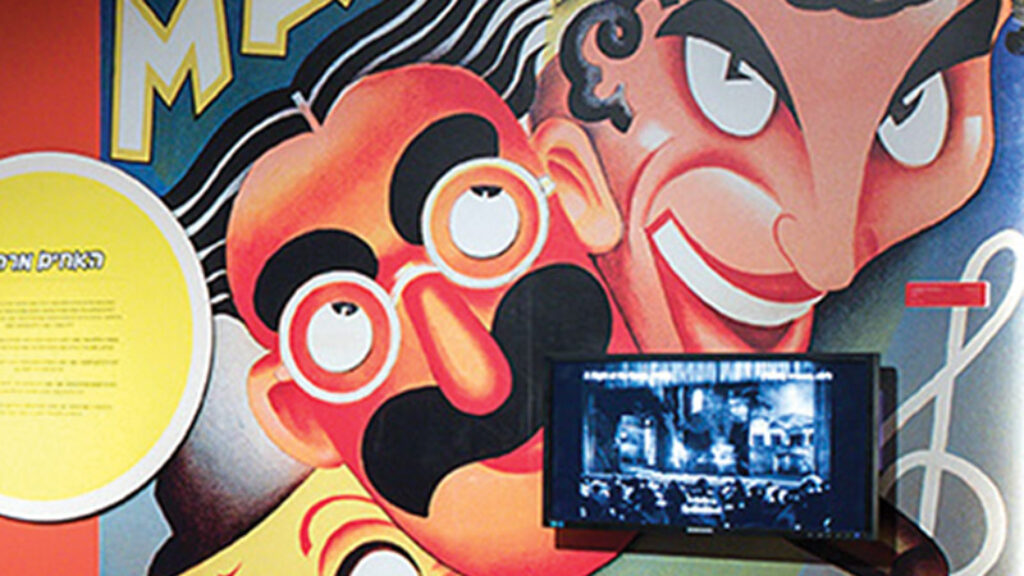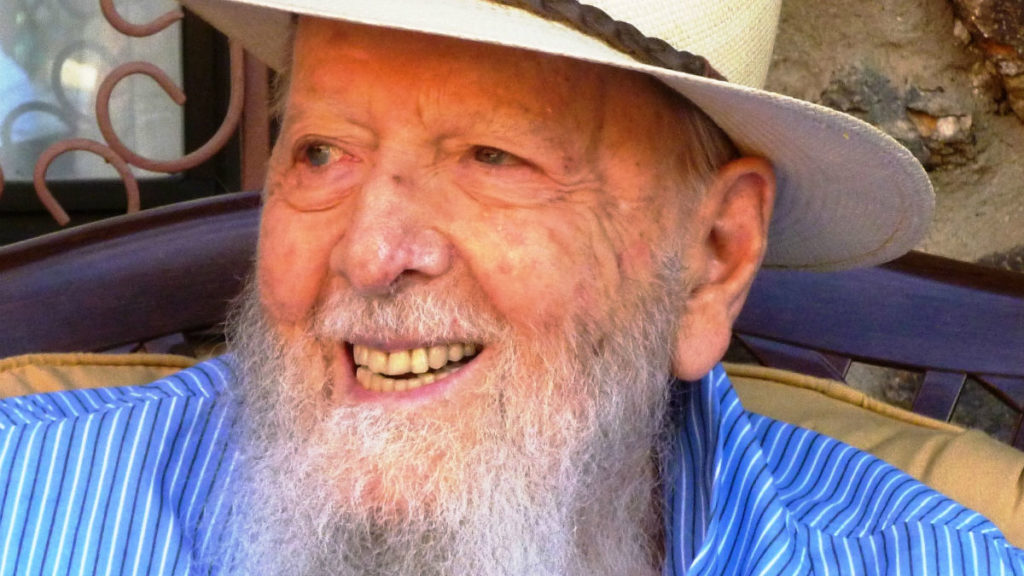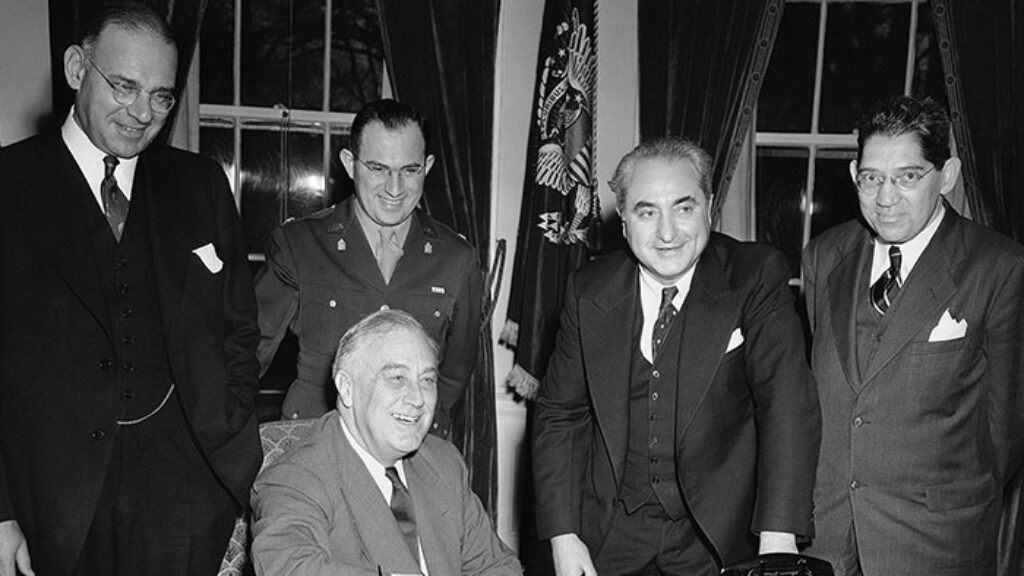Finding Gold
As authors go, Herbert Gold was unique: prolific, protean, if never quite famous. Gold, who died last week at ninety-nine, wrote a bit of everything: essays, poetry, fiction. His best-known novel, Salt (1963), was variously compared to The Adventures of Augie March and Philip Roth’s early work (“Gold had learned from Roth’s mistakes,” a critic wrote).
On top of that, he was a mensch, as I learned last November when I visited him in San Francisco. I had phoned him, out of the blue, seeking an interview. He graciously declined.
Fine, I said; let’s just talk.
“I know that trick,” he said.
Nonetheless, he indulged me. I dutifully trekked to his Russian Hill neighborhood, up some preposterously steep streets, then up some stairs, into his cluttered aerie of an apartment.
Gold was a spry ninety-eight, and planned to live forever. He looked like he might pull it off: at an age when breathing is an achievement, he spoke quickly, telling ancient stories about Paris and Haiti. Between gusts of conversation, he ambled around, wielding his walker so nimbly, it seemed like a form of exercise.
Soon he was recalling Saul Bellow. In the late 1940s, Bellow discovered him, blessed his ambitions, and touted him to Viking Press, which snatched Gold’s first novel. To Gold, it was a bit of grace, unexpected, undeserved, and still appreciated, seventy-two years later.
As for Philip Roth, their connection was less sanguine. As it happened, Gold had dated Roth’s first wife, Maggie Martinson, before she met Roth. “She said, ‘I’m going to marry this Jewish writer from Chicago unless I meet someone better,’” Gold recalled. The rest was history, of the messy, salacious kind. “Roth was awful with women,” Gold said. “Unfortunately, I introduced him to another ex-girlfriend of mine, Ann Mudge. He treated her terribly. She had a breakdown.”
Gold had kept a furious letter from the writer Mark Harris, which he proudly read aloud. “Salt is the foulest, least conscious novel imaginable. . . . Think more and write less.” In person, Harris had said, “You will never be an American writer. You will always be a Jewish writer.” Unlike Harris, née Finkelstein, Gold never anglicized his name. Wouldn’t. It was a matter of principle.
Meanwhile, Gold was being incredibly patient. I had already flunked my first test. “Who do you recognize?” Gold asked, flashing an old black-and-white photograph. Scanning it, I hoped for some afflatus. “Do you recognize any of them?” He waited. “That’s Bill Styron. That’s Bob Silvers. There’s Rose Styron. This was after a party at George Plimpton’s.” He named the address: East 72nd Street.
If Gold’s mind was clear, his apartment was chaotic. Books crammed onto slanted shelves. An old grey radio. An even older Royal typewriter, durable, with a working ribbon. It was a charming, heimish mess.
Gold announced that he wanted something: a printed copy of his charming essay, “Oatmeal Raisin Cookies and the Jewish Problem,” about growing up Jewish in Cleveland. Would I mind? Large type, please. With technology, Gold was a proud refusenik: no computer, no cell phone. Perhaps I had a printer somewhere. He didn’t.
As we spoke, Gold settled into an ancient rocking chair. Though he didn’t discuss it, Gold was a progressive Zionist, loyal to Israel. He had visited several times. He would spend the final month of his life obsessively following the news, anguished—indeed, outraged—by the October 7 massacre.
Leaving Gold’s apartment, I wondered if we’d meet again. It seemed unlikely—but who knew? Except for his hearing, Gold seemed hale. He was planning a trip. Dusting off his passport.
“I started writing young,” Gold had said, “so my so-called contemporaries are all gone.” Roth, recently. Bellow, in 2005. Gold, ninety-eight, was the last Jewish writer standing.
“Everyone dies,” he said, though he seemed to mean everyone else. Then again, his 2018 poetry collection, Nearing the Exit, was a kind of valediction.
When Gold died, a raft of obituaries celebrated this modest, good-hearted author. I found the copy of Nearing the Exit he’d given me.
“For Jesse Tisch,” he’d written in a shaky hand: “young colleague far from the exit.”
Suggested Reading

Of Synagogues and Seinfeld
It's an interesting time to open a museum that argues for the interconnectedness of the Jewish world since it is virtually impossible for non-Israelis to enter the country.

Revisiting Herman Wouk’s City Boy
Remembering Herman Wouk's "gentle mockery at the shopworn pretensions of bohemian poseurs and ethnic Jews passing as nonhyphenated Americans."

Faith in Princes
That FDR could have done more for the Jews in the Holocaust has long been known, but have we fully understood how much his inaction sprang from his own antisemitism?
Letters, Fall 2023
A Question of Authority It’s inaccurate and fundamentally unfair to take the words of a character in a novel and attribute them to the author. Sadly, this is what Nadia Kalman elects to do in her review of my novel, The Dissident (“Problems with Authority,” Summer 2023). Writes Kalman: This novel seems to be saying something like this: antisemitic persecutions…
Comments
You must log in to comment Log In